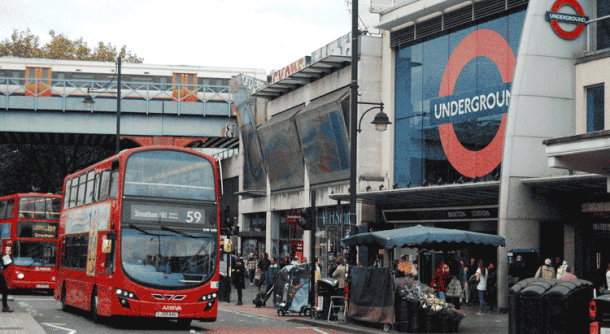 Pollution on Brixton Road in early January may have set a “world record” for the number of times official pollution limits had been breached in a single day, according to the Clean Air in London organisation.
Pollution on Brixton Road in early January may have set a “world record” for the number of times official pollution limits had been breached in a single day, according to the Clean Air in London organisation.
The World Health Organisation guideline is for no human exposure to the dangerous gas nitrogen dioxide (NO2) at over 200 micrograms per cubic metre (ug/m3) measured over one hour. The EU legal limit, also in UK law, is 18 hours in a calendar year.
The monitor in Brixton Road was the first in London to report 19 “exceedances” at 9pm on Thursday 5 January (and 21 by 11pm).
Hourly NO2 concentrations reached an “incredible” 347.7 ug/m3 in Brixton Road at 9pm on 5 January, Clean Air in London said.
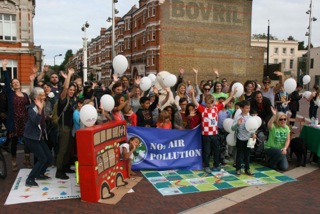 NO2 pollution in Brixton peaked again on 24 January at 237.3 ug/m3 at 9pm.
NO2 pollution in Brixton peaked again on 24 January at 237.3 ug/m3 at 9pm.
Clean Air in London director Simon Birkett called for outdoor food and drink sales to be stopped in areas with such high levels of dangerous pollution.
ClientEarth, a group of campaigning lawyers, said pollution in Brixton Road was the highest in London.
ClientEarth member and Brixton resident Alan Andrews said it was “absolutely essential” that London mayor Sadiq Khan delivers on his promises to tackle pollution and that the national government “backs him to the hilt”.
He has promised a bigger ultra-low emission zone for 2019 and the cleanest buses on the most polluted roads.
Andrews said draft government plans to tackle air pollution were due to be published in April.
“They must include a national network of clean air zones, which stop the dirtiest diesel vehicles entering pollution hotspots,” he said.
“They also have to stop the perverse fiscal incentives which encourage people to use diesel vehicles and instead help them to buy cleaner ones.”
London Assembly Green Party member Caroline Russell visited the Brixton Road monitoring point that records the pollution and said: “London must comply with nitrogen dioxide legal limits by 2020 at the very latest.”
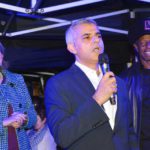 Mayor Khan is planning to introduce no/low emission buses on routes between Streatham and Brixton in October this year.
Mayor Khan is planning to introduce no/low emission buses on routes between Streatham and Brixton in October this year.
Lambeth council cabinet member for environment and transport Jennifer Brathwaite said: “This is shocking, but sadly not surprising. We are very aware of the high levels of pollution in the borough, which is why we encourage our residents to change their behaviour, while lobbying City Hall and the government for improvements.”
The council says it is estimated that up to 40% of air pollution in Lambeth is from sources outside the borough.
It recently completed consultations on an “air quality action plan” which will be followed up by a steering group including council officers. One of the proposals it will investigate is installing Santander (Boris) bikes outside Brixton station.
The council wants businesses and individuals to join the group – contact sustainability@lambeth.gov.uk.
You can check on pollution in Brixton and other parts of Lambeth at the London Air page of King’s College London.


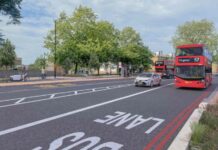
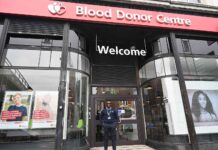



Having so many pollutants and particles in the air is clearly not conducive to good health and wellbeing for those who live and pass through Brixton and its surroundings. This needs to be tackled by Lambeth Council, the London Assembly and Government. They need to look at the issues causing this and implement a plan to tackle it before 2020. It is surprising that the poor air quality sets a potential “world record” as many cities in the world have actual visible particles and pollutants in the form of smog since the pollution is so dense. This is something we have not had to endure in London, since the great smog of 1952. To go back to dense smog would be a real backward step and perhaps we are slowly edging back there as these pollution statistics don’t appear to be getting any better.
Lambeth Council should stop forcing all traffic into central Brixton, causing huge traffic queues to belch NO2. Let traffic peel off to Acre Lane as before instead of forcing a left turn outside the town hall, which causes so much congestion and pollution. There must be other traffic re-routing methods that could help.